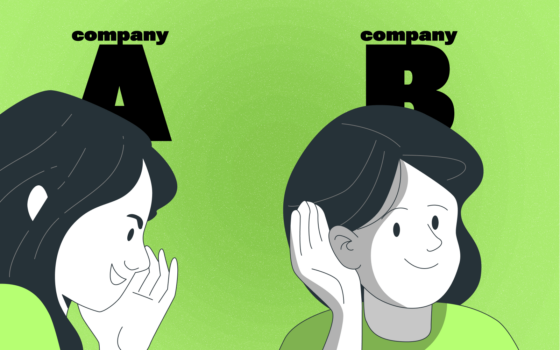Easter Company Party
Introduction to Easter Company Parties
Easter company parties have become an increasingly popular way for organizations to celebrate the spring season, boost employee morale, and foster a sense of community within the workplace. These festive gatherings offer a unique opportunity for colelagues to come together outside of their usual work environment, promoting team bonding and creating lasting memories.
In this comprehensive guide, we'll explore the various aspects of planning and executing a successful Easter company party, from conceptualization to post-event evaluation. Whether you're an HR professional, event planner, or curious employee, this article will provide valuable insights into the world of corporate Easter celebrations.
The Importance of Easter Company Parties
Easter company parties serve several important functions within an organization:
1. Employee Engagement
These events provide a platform for employees to interact in a relaxed setting, fostering better relationships and improving overall workplace dynamics. Engaged employees are more likely to be productive and committed to their roles.
2. Cultural Celebration
Easter parties allow companies to acknowledge and celebrate cultural diversity, recognizing the significance of this holiday for many employees while promoting inclusivity.
3. Stress Relief
Organizing fun activities and gatherings during the Easter season can help alleviate workplace stress and provide a much-needed break from daily routines.
4. Company Branding
Well-executed Easter parties can enhance a company's image, both internally and externally, showcasing the organization's commitment to employee well-being and work-life balance.
Planning Your Easter Company Party
Successful Easter company parties require careful planning and attention to detail. Here are some key considerations:
1. Establish a Budget
Determine how much your organization is willing to spend on the event. This will guide decisions regarding venue, catering, decorations, and activities.
2. Choose a Date and Time
Select a date close to Easter that works for the majority of employees. Consider whether the party will be held during work hours or as an after-hours event.
3. Select a Venue
Decide whether to host the party on-site or at an external location. Factors to consider include space requirements, amenities, and accessibility.
4. Develop a Theme
Create a cohesive theme for your Easter party. This could range from traditional Easter motifs to more unique concepts like "Spring Awakening" or "Hoppy Hour."
5. Plan Activities and Entertainment
Organize engaging activities and entertainment options that cater to diverse interests and age groups. This might include egg hunts, craft stations, or live performances.
6. Arrange Catering
Choose a menu that reflects the Easter theme while accommodating various dietary restrictions and preferences.
7. Send Invitations
Distribute invitations well in advance, providing all necessary details such as date, time, venue, dress code, and RSVP instructions.
Popular Easter Company Party Themes
Selecting an appropriate theme can elevate your Easter company party from ordinary to extraordinary. Here are some popular theme ideas:
1. Spring Garden Party
Transform your venue into a blooming garden paradise with floral decorations, pastel colors, and nature-inspired elements.
2. Easter Egg-stravaganza
Focus on all things egg-related, from decorating contests to egg-and-spoon races.
3. Bunny Hop Bash
Embrace the playful side of Easter with rabbit-themed decor, costumes, and activities.
4. Chocolate Factory
Indulge in all things chocolate with a Willy Wonka-inspired celebration.
5. Springtime in Paris
Combine Easter traditions with French elegance for a sophisticated soirée.
Engaging Activities for Easter Company Parties
The success of your Easter company party largely depends on the activities you offer. Here are some engaging ideas to consider:
1. Easter Egg Hunt
Organize a traditional egg hunt with a corporate twist, hiding eggs containing company-related trivia or small prizes.
2. Egg Decorating Station
Set up a creative space where employees can decorate eggs using various materials and techniques.
3. Photo Booth
Provide a festive photo booth with Easter-themed props for employees to capture memories of the event.
4. Easter Basket Building Competition
Divide employees into teams and challenge them to create the most impressive Easter basket using provided materials.
5. Spring-Themed Trivia
Host a trivia game featuring questions about Easter traditions, spring facts, and company history.
6. Egg and Spoon Race
Organize a classic egg and spoon race, adding an element of friendly competition to the festivities.
7. Easter Bonnet Parade
Encourage employees to create and wear their own Easter bonnets, culminating in a parade and contest.
Catering Considerations for Easter Company Parties
The food and beverages served at your Easter company party play a crucial role in its success. Consider the following when planning your menu:
1. Traditional Easter Fare
Incorporate classic Easter dishes such as hot cross buns, roasted lamb, and deviled eggs.
2. Spring-Inspired Cuisine
Highlight seasonal ingredients like asparagus, peas, and strawberries in your menu offerings.
3. Dietary Accommodations
Ensure that you provide options for various dietary restrictions, including vegetarian, vegan, gluten-free, and kosher meals.
4. Festive Desserts
Offer a selection of Easter-themed sweets, such as bunny-shaped cookies, carrot cake, and chocolate eggs.
5. Beverage Options
Provide a mix of alcoholic and non-alcoholic beverages, including spring-inspired cocktails and mocktails.
Decorating Your Easter Company Party Venue
Create a festive atmosphere with thoughtful decorations that reflect your chosen theme:
1. Color Scheme
Utilize pastel colors traditionally associated with Easter, such as pink, yellow, light blue, and lavender.
2. Floral Arrangements
Incorporate spring flowers like tulips, daffodils, and lilies into your decor.
3. Easter Symbols
Use decorative elements such as Easter eggs, bunnies, and chicks throughout the venue.
4. Table Settings
Create eye-catching centerpieces and place settings that complement your overall theme.
5. Lighting
Enhance the ambiance with string lights, candles, or pastel-colored lanterns.
Inclusivity and Sensitivity in Easter Company Parties
While Easter company parties can be enjoyable events, it's essential to consider the diverse backgrounds and beliefs of your employees:
1. Recognize Religious Diversity
Acknowledge that not all employees may celebrate Easter and ensure that participation is optional.
2. Offer Alternative Activities
Provide non-Easter-specific activities for those who may not wish to participate in traditional Easter events.
3. Communicate Clearly
Be transparent about the nature of the event and any religious elements that may be included.
4. Consider Timing
Be mindful of other religious observances that may coincide with your planned Easter celebration.
Post-Event Evaluation and Feedback
After your Easter company party, it's important to assess its success and gather feedback for future events:
1. Employee Surveys
Distribute surveys to collect opinions on various aspects of the party, including activities, food, and overall enjoyment.
2. Attendance Analysis
Review attendance numbers and compare them to previous events to gauge employee interest.
3. Budget Review
Evaluate the final costs against the initial budget to inform future planning.
4. Informal Feedback
Encourage managers to gather casual feedback from their teams about the event.
5. Photo and Video Review
Analyze event photos and videos to identify successful elements and areas for improvement.
Conclusion
Easter company parties offer a unique opportunity to bring employees together, boost morale, and celebrate the spirit of spring. By carefully planning and executing these events, organizations can create memorable experiences that strengthen team bonds and contribute to a positive workplace culture.
Remember that the key to a successful Easter company party lies in thoughtful planning, inclusive activities, and a festive atmosphere that resonates with your employees. Whether you opt for a traditional celebration or a more unconventional approach, the goal is to create an enjoyable experience that leaves a lasting impression on all attendees.
As you embark on planning your next Easter company party, keep in mind the various elements discussed in this guide, from budgeting and theme selection to activity planning and catering considerations. By paying attention to these details and remaining sensitive to the diverse needs of your workforce, you can create an event that truly embodies the spirit of renewal and togetherness that Easter represents.
Ultimately, a well-executed Easter company party can serve as a powerful tool for employee engagement, team building, and cultural celebration. So, hop to it and start planning an egg-cellent Easter celebration that your employees won't soon forget!


